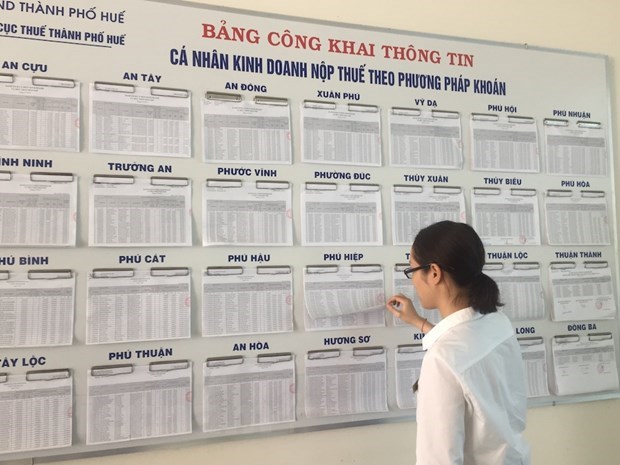State Audit asks for more power
 Illustrative image (Source: VietnamPlus)
Illustrative image (Source: VietnamPlus)
Hanoi (VNA) - The State Audit of Vietnam (SAV) should be allowed to launch audits without having to seek the approval of other agencies when signs of corruption are discovered, State Auditor General Ho Duc Phoc has said.
The official also proposed his agency be given power to deal with organisations and individuals that refuse to provide information for an audit or hinder auditing activities.
He made the call at a conference on February 20 on the draft law on amendments and supplements to some articles of the Law on State Audit 2015.
Should State Audit be authorised to summon?
According to Phoc, the Anti-Corruption Law has defined the SAV as one of the agencies charged with discovering and tackling corruption.
However, he said the SAV needs more power to carry out this role.
International experience shows that the empowerment of state auditors, including in the Republic of Korea, has strengthened the enforcement and efficiency of auditing activities.
Methods of verification and examination that have been applied include summoning those related to the case to clarify accounting reports and address issues on documents and others.
Currently, under the State Audit Law, there are three foundations for the State Auditor General to issue auditing decision – the SAV yearly plan; the requests by the NA, NA Standing Committee, the State President, and Prime Minister; and the requests by agencies and organisations accepted by the SAV.
This means the SAV lacks the ability to launch its own audits, apart from those in its annual plan, which is approved by the NA. Meanwhile, the Anti-Corruption Law 2018 gives the State Auditor General limited power to launch his own audits, meaning the anti-corruption law and State Audit Law are incongruous with each other, leading to Phoc’s call for a change to the latter.
Regarding anti-corruption work, Nguyen Manh Cuong, Vice Chairman of the NA Law Committee, said the Anti-Corruption Law clarifies the accountability of agencies and organisations in performing their tasks, including the responsibility to clarify issues at the requests of agencies, organisations, units and individuals affected by a decision or action, as well as when a violation is reported by the media.
At the same time, Cuong said the Law on State Audit has only defined the responsibility of the SAV as “explaining the auditing results to the NA and NA agencies”. He stressed the need to adjust the law.
“Fearless” due to lack of discipline
On the other hand, Phoc pointed out that audited agencies tend to refuse to provide information needed for auditing, or provide them in an incomplete and untimely manner.
Statistics show that in 2017, agencies failed to supply documents in 121 cases, making it impossible for the SAV to carry out its work.
He said that in 2017, among more than 91 trillion VND of projects requested for auditing, only 66 trillion VND, or more than 73 percent, was audited. He added that the percentage several years ago was 76-78 percent.
This has led to losses in State budget collection, he said, adding that the major cause of the problem was a lack of regulations on discipline for such violations.
Currently, oral warnings are regularly applied, which reduces the efficiency of auditing activities as well as the strictness of the law, he said.
In some countries such as Russia, China, Cambodia and Germany, state auditors are authorised to order administrative fines, he noted.
Dang Thanh Son, head of the Ministry of Justice’s Department for management of administrative violation settlement and law execution supervision, agreed with Phoc. He said that violations in state auditing are common, but the legal system lacks regulations to deter violators.
He said many have proposed that the National Assembly’s Standing Committee consider applying the maximum fine for administrative violations in auditing.
However, he asserted that there is no complete legal foundation for the proposal, as the consideration would only be made after adjusting and supplementing regulations of the Law on Settlement of Administrative Violations and Law on State Audit.-VNA













